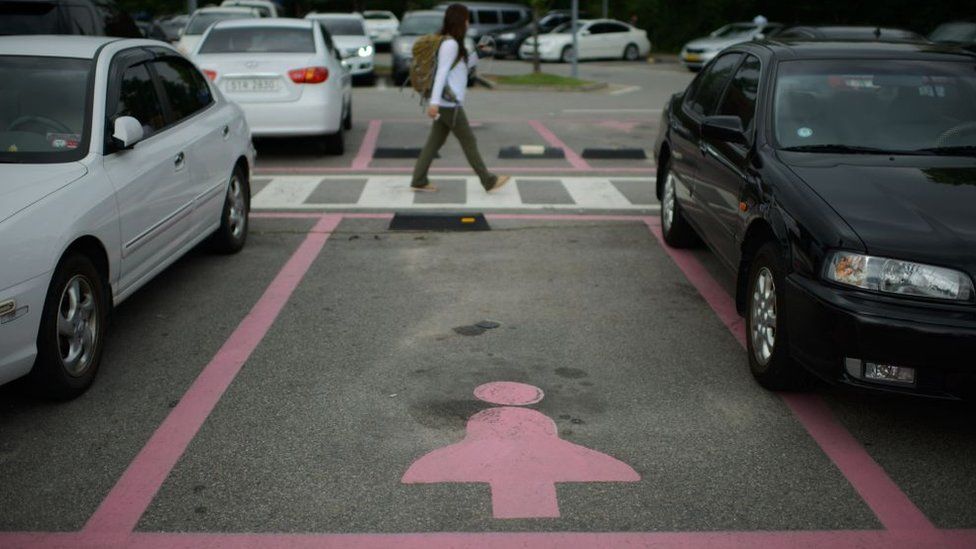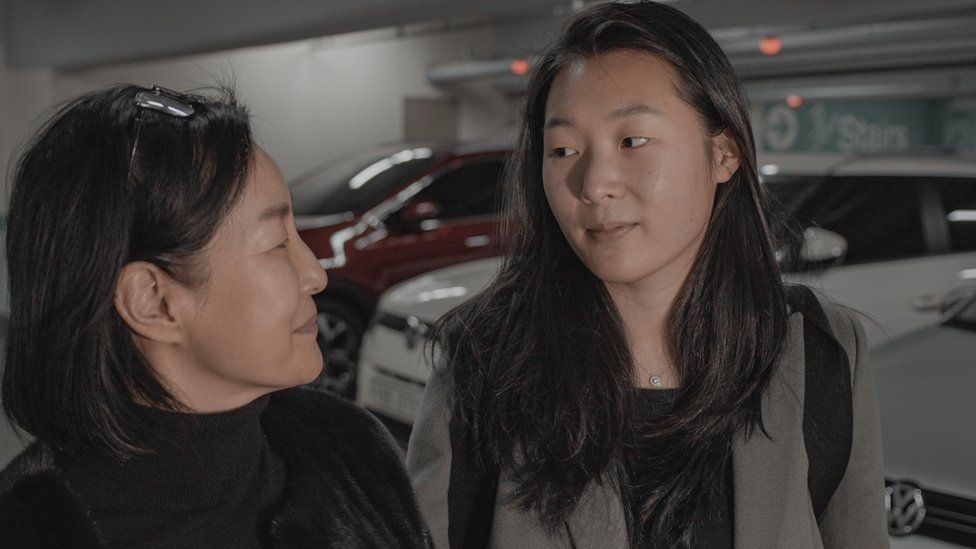14 years after being introduced as a form of protection for women, women-only parking spaces in Seoul, South Korea, are being eliminated.
After a wave of violent crimes in basement parking lots, the women-only spaces were implemented in 2009.
However, according to city officials, these spots will be converted to family parking spots because they are no longer required.
Critics claim that their removal is just the most recent illustration of South Korea's anti-feminist policies.
When she can find one, Chung Eun-jung, 55, said she uses the female restrooms: "I feel safer when I use them, that there are not so many dangerous people close by. ".
She remarked, "Whenever I get in the car, I always lock the door right away. I'm well aware of car park crimes, which are frequently covered in the news.
Her daughter expressed her displeasure at her mother feeling less secure.
The 27-year-old Park Young-seo thought it was strange that they would actively get rid of something that gave women a sense of security.
They are not that important. Just a few spots are reserved for women; it's not like the entire parking lot is. ".

The largest city in South Korea, Seoul, was required to reserve 10% of the 16,640 public parking spaces for women. Just under 2,000 of these spaces were allocated to females.
So that women wouldn't have to trudge through dark basements, they frequently stood close to building entrances.
More than two-thirds of violent crimes in the city's parking lots in 2021, according to government statistics, were sexual offenses like rape, sexual assault, and harassment.
The woman-only areas were first introduced by Seoul Mayor Oh Se-hoon, who is now changing his own stance. He stated that "considering families" should be done now.
Pregnant women and parents-to-be who are traveling with kids will have access to the new family spots. The city council affirmed that women who didn't fit these requirements wouldn't be permitted to use them.
This action contributes to what critics claim is an anti-feminist culture that has pervaded South Korean politics in recent years, they say.
In South Korea, male opponents of policies that favor women are becoming more vocal.
The current administration has attempted to close the gender equality ministry and removed the term "gender equality" from the curriculum for school ethics.
Although Oh Kyung-jin from the Korean Women's Association is disappointed that the spaces are being eliminated, she is more worried about the general trend.
We can now see these regressive policies influencing local governments because the government is trying to advance anti-feminist policies, she claimed.
But male pilot Cho Young-jae believes that the women-only areas should be eliminated.
The 34-year-old claimed that "men are discriminated against in these spaces.".
"Walking an additional 100 meters doesn't make you any less safe, and parking lots these days are covered in security cameras. " .
The introduction of the women-only parking spaces, which first appeared in Germany in the 1990s, has caused controversy in South Korea.
Some were criticized because they were wider and longer, reinforcing the notion that parking is more difficult for women. They are bigger because it was thought that women, who in South Korea are primarily responsible for childcare, would value the extra room for loading and unloading their children.
At the end of March, the city government intends to begin converting the areas.







